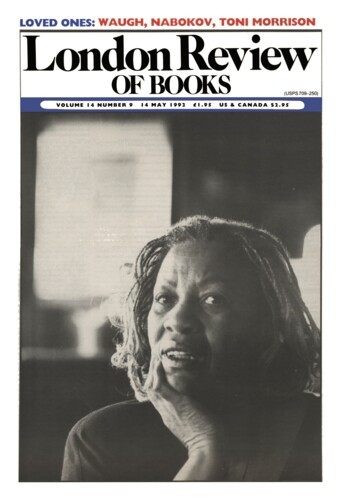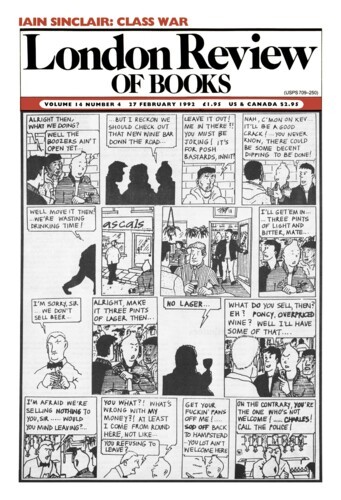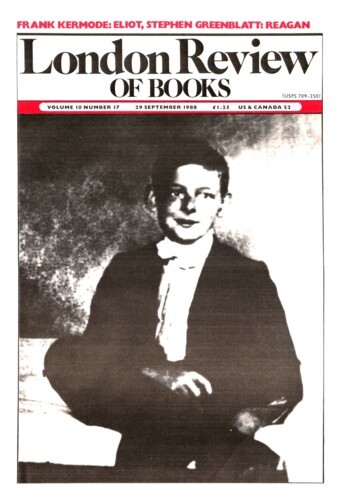George Hyde
George Hyde is a lecturer in English and Comparative Literature at the University of East Anglia.
Their Witness
27 February 1992
Moving house
29 September 1988
Diary: Story of a Mental Breakdown
George Hyde, 29 September 1988
In the summer of 1985, I flipped my lid: went mad, had a breakdown, or embarked upon a depressive illness, whatever your preferred terminology is. Depression, though a euphemism, is probably the best available description of what the condition looks and feels like to the person going through it, and to others. Madness is fascinating to read about in literature, where it seems to provide a royal road through tragic downfall to moral salvation. But this is, of course, the world of art, where everything works out in the end, for better or worse, and everything fits together. Life, need we say, is not like that, since it just keeps on going on until one day it stops, generally of its own accord: and for this reason, among others, madness (or depressive illness) in reality, as opposed to literature, is boring as well as upsetting, and seems to lead nowhere and prove nothing. There are many consoling clichés abroad about breakdown: one is that it is ‘like breaking your leg’. Another is that it can make you a better person. Neither of these statements is true. Anyone who tries to tell me them again will end up severely mutilated.
Read anywhere with the London Review of Books app, available now from the App Store for Apple devices, Google Play for Android devices and Amazon for your Kindle Fire.
Sign up to our newsletter
For highlights from the latest issue, our archive and the blog, as well as news, events and exclusive promotions.



